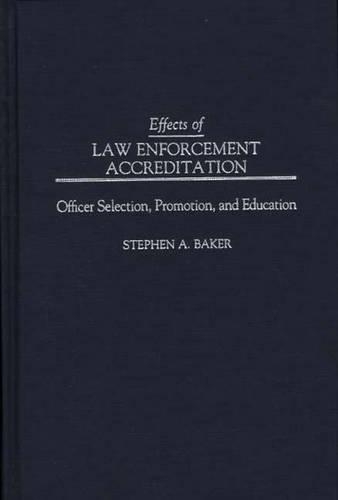
Effects of Law Enforcement Accreditation: Officer Selection, Promotion, and Education
(Hardback)
Publishing Details
Effects of Law Enforcement Accreditation: Officer Selection, Promotion, and Education
By (Author) Stephen A. Baker
Bloomsbury Publishing PLC
Praeger Publishers Inc
20th November 1995
United States
Classifications
Tertiary Education
Non Fiction
Crime and criminology
Personnel and human resources management
363.20973
Physical Properties
Hardback
184
Width 156mm, Height 235mm
340g
Description
For many years, law enforcement administrators, government officials, and researchers have explored the possibility of professionalizing law enforcement agencies and their officers. Some have called for mandatory college education requirements while others have argued for the formation of a national police force. In 1979, police practitioners from various law enforcement executive organizations met to develop a process to professionalize police agencies by instituting standards covering the wide range of police functions. The Commission on Accreditation for Law Enforcement Agencies, Inc. (CALEA) was born. This book describes the results of a study that evaluated the impact of CALEA accreditation on specific personnel administration practices in municipal police departments. The author compares accredited and non-accredited departments for personnel practices including procedures for officer selection, promotion, and the integration of formal education requirements.
Author Bio
STEPHEN A. BAKER is a 22-year law enforcement veteran with experience in all areas of police work and management. He is currently the Captain over the Technical Services Division of the Mesa Police Department. He has served as a CALEA Assessor, his department's accreditation manager, and as president of the Arizona Police Accreditation Coalition. He received his Doctor of Public Administration from Arizona State University.
